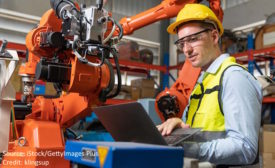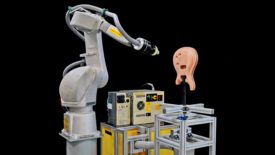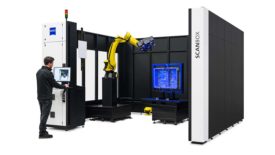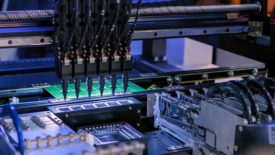Automation
Vision & Sensors | Automation
What is Trustworthy AI for Quality Control?
Quality control in manufacturing relies on automation – and people.
April 30, 2024
Vision & Sensors | AI
Smart Support: Artificial Intelligence in Metrology
Optical measurement technology is far ahead of tactile technology when it comes to AI applications.
April 26, 2024
Automation
How Automation Can Help You Achieve Your Growth Targets
The work that employees enjoy least is generally the most suitable for automation.
April 22, 2024
Automated Inspection
Automating EV Battery Tray Inspection Increases Speed of Information
Many EV manufacturers are still searching for the optimal inspection method for the battery tray.
April 19, 2024
Aerospace Manufacturing
Smart Robot Automates Inspection of Helicopter Blades
New technology is more accurate and less labor-intensive than manual inspection.
April 2, 2024
Stay in the know with Quality’s comprehensive coverage of
the manufacturing and metrology industries.
eNewsletter | Website | eMagazine
JOIN TODAY!Copyright ©2025. All Rights Reserved BNP Media.
Design, CMS, Hosting & Web Development :: ePublishing








